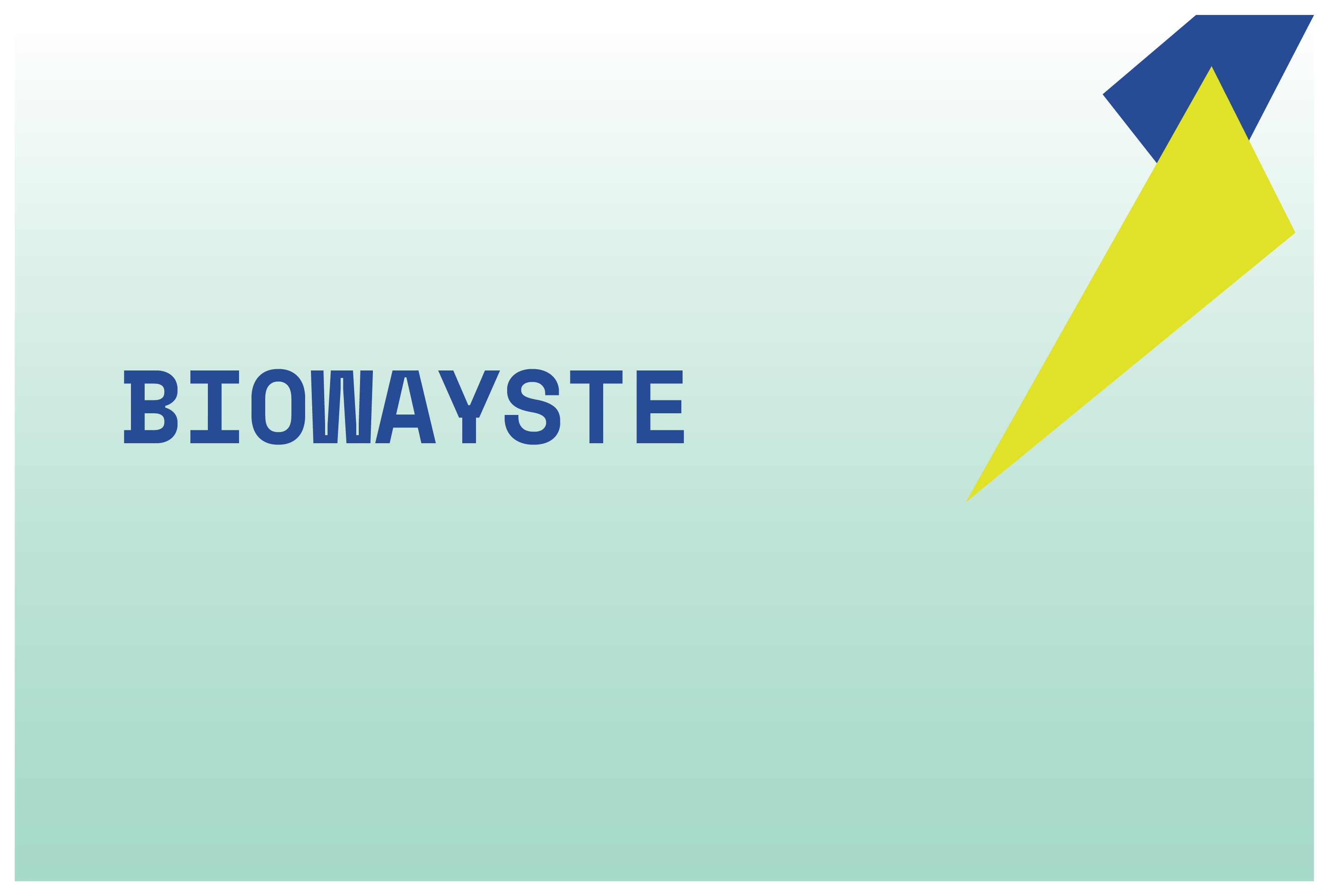Problem Addressed
One of the major problems that BIOwayste is addressing is the huge amount of food waste produced and landfilled, polluting the water resources and generating high levels of greenhouse gas emissions. In fact, 1.3 billion tons of food is wasted globally each year, of which 90% of this waste ends up in Landfills or open dumpsites. Moreover, the municipal solid waste (MSW) management system, from collection to recycling, is costly. Yet, only a quarter of the total amount of the MSW produced each year is recycled or recovered. Finally, we are living in a country that suffers from the incessant shortage of natural resources and the consequent increase in commodity prices.
Solution Proposed
BIOwayste offers a green alternative to benefit from food waste and convert it into renewable resources. BIOwayste is an intelligent enclosed bin in which the organic waste will breakdown, through bacterial decomposition, in the absence of oxygen, and produce Biogas and Biofertilizer. The generated biogas can be used to produce electricity and heat and can be used as a substitute for natural gas.
BIOwayste reduces up to 18 tons of CO2 emissions yearly, it is a user-friendly machine, it doesn’t need electricity, and it has a low maintenance cost.
In terms of innovation; BIOwayste is unique in its complete green line production which is based on the use of a natural extract to decontaminate the biofertilizer.
Considering the environmental impact, BIOwayste minimizes the percentage of food wasted leading to a reduction in the greenhouse gas emissions to up to 40% annually. It reduces also the use of chemical fertilizer by producing a daily high-quality biofertilizer. It recuperates and recycles waste compounds that would otherwise contaminate our landfills and water resources. Moreover, it reduces deforestation, reduces the use of firewood, endorses the use of clean energy and improves health conditions. Unlike fossil fuel, the produced biogas is a natural gas that does not promote the greenhouse effect, ozone depletion or acid rain. Additionally, BIOwayste saves money by using renewable energy. Biowayste contributes to the following sustainable development goals are 3: Good- Health and well-being, 7: affordable clean energy, 11: sustainable cities and communities, 12: responsible consumption and production, 13: climate action and 15: clean energy.
Target Market
The target markets of this product will be first food courts either decentralized or located in malls in addition to big restaurants, supermarkets, and farms. The global food waste management market size was estimated at US$32.64 Billion. In Lebanon, we have around 60 food courts and more than 5000 restaurants, so our target market is estimated at US$3 billion. Moreover, we will be contacting municipalities along with local and international NGOs to try to implement this model for refugee camps. Our product on a small scale can be also adopted at the household level; therefore, households are part of our potential global market. We will start selling our product locally and then we will expand our line to the gulf countries and Mediterranean area that are well known for the huge amount of food leftover.
It is important to highlight that we are market leaders in the area targeting a different segment of customers and a different local and international market segment. Moreover, we distributed a “potential client feedback survey” in the North and Beirut and the preliminary date revealed positive and effective feedback.


